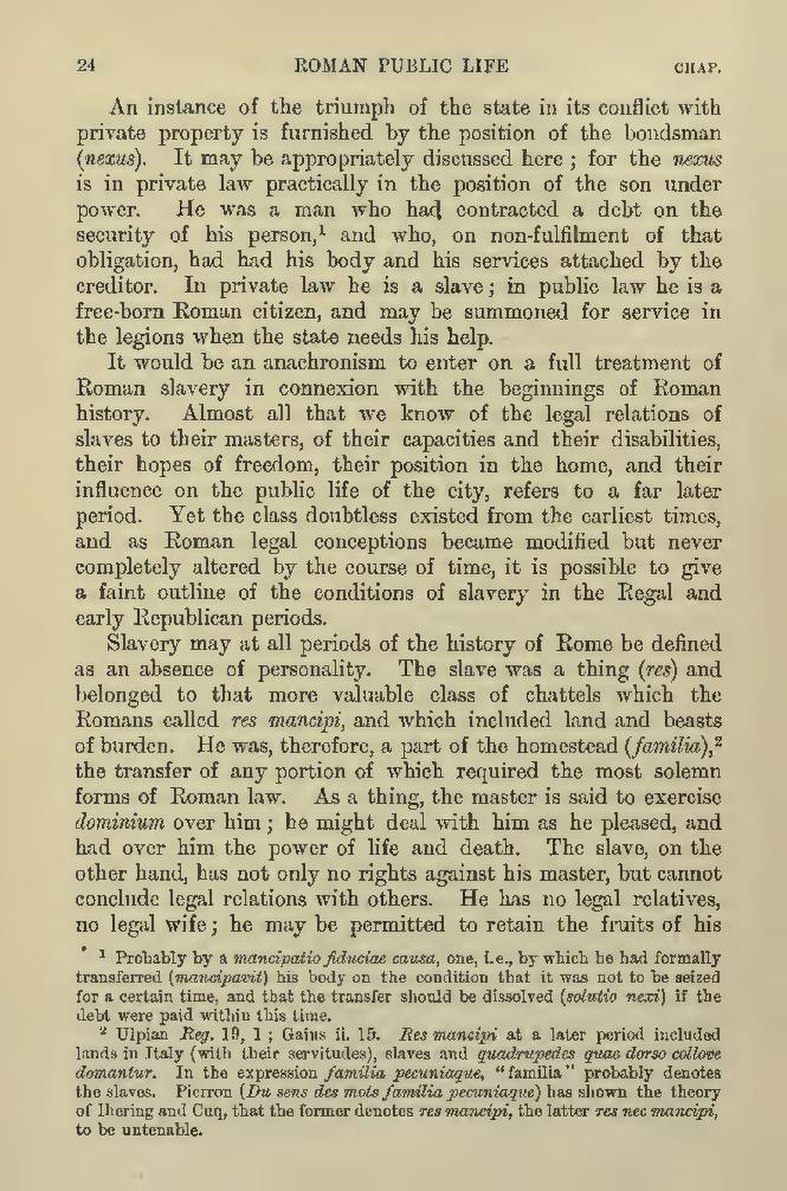An instance of the triumph of the state in its conflict with private property is furnished by the position of the bondsman (nexus). It may be appropriately discussed here; for the nexus is in private law practically in the position of the son under power. He was a man who had contracted a debt on the security of his person,[1] and who, on non-fulfilment of that obligation, had had his body and his services attached by the creditor. In private law he is a slave; in public law he is a free-born Roman citizen, and may be summoned for service in the legions when the state needs his help.
It would be an anachronism to enter on a full treatment of Roman slavery in connexion with the beginnings of Roman history. Almost all that we know of the legal relations of slaves to their masters, of their capacities and their disabilities, their hopes of freedom, their position in the home, and their influence on the public life of the city, refers to a far later period. Yet the class doubtless existed from the earliest times, and as Roman legal conceptions became modified but never completely altered by the course of time, it is possible to give a faint outline of the conditions of slavery in the Regal and early Republican periods.
Slavery may at all periods of the history of Rome be defined as an absence of personality. The slave was a thing (res) and belonged to that more valuable class of chattels which the Romans called res mancipi, and which included land and beasts of burden. He was, therefore, a part of the homestead (familia),[2] the transfer of any portion of which required the most solemn forms of Roman law. As a thing, the master is said to exercise dominium over him; he might deal with him as he pleased, and had over him the power of life and death. The slave, on the other hand, has not only no rights against his master, but cannot conclude legal relations with others. He has no legal relatives, no legal wife; he may be permitted to retain the fruits of his
- ↑ Probably by a mancipatio fiduciae causa, one, i.e., by which he had formally transferred (mancipavit) his body on the condition that it was not to be seized for a certain time, and that the transfer should be dissolved (solutio nexi) if the debt were paid within this time.
- ↑ Ulpian Reg. 19, 1; Gaius ii. 15. Res mancipi at a later period included lands in Italy (with their servitudes), slaves and quadrupedes quae dorso collove domantur. In the expression familia pecuniaque, "familia" probably denotes the slaves. Pierron (Du sens des mots familia pecuniaque) has shown the theory of Ihering and Cuq, that the former denotes res mancipi, the latter res nec mancipi, to be untenable.
